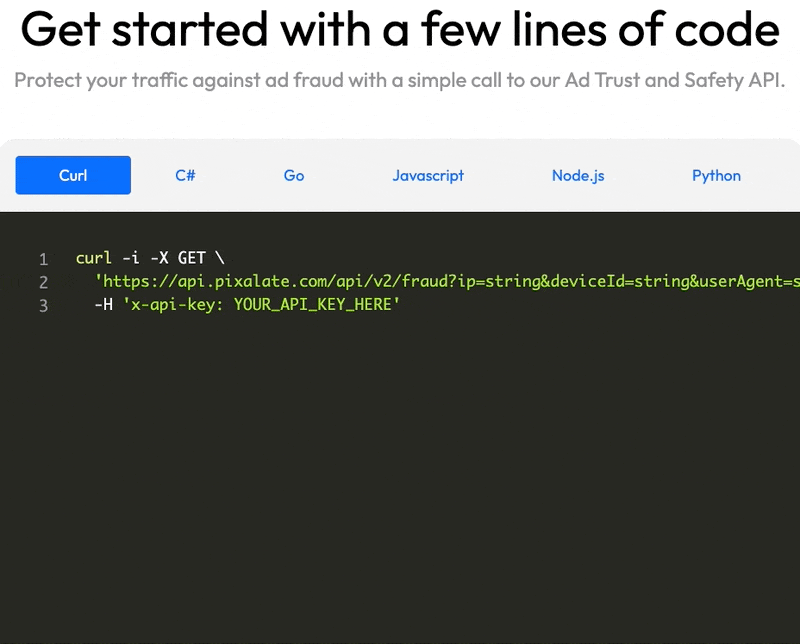
This week's review of ad fraud and quality in the digital advertising space.

To address rising ad fraud problem in CTV and mobile app ecosystem, Pixalate "announced its Ad Trust & Safety API suite, a set of self-service APIs and SDKs for developers to incorporate fraud prevention technologies into apps for iOS, Android, Chromecast, Roku, Amazon Fire TV, Apple TV, and major gaming consoles," informs Dark Reading.
“We believe fraud prevention technology should be accessible to all—because no one is safe from ad fraud until everyone is safe," Jalal Nasir, founder and CEO of Pixalate, says in a statement. "Developers now finally have the fraud prevention tools they need to protect their apps, preserve their brand reputation, and help eliminate widespread fraud."
Read Article
Read the Press Release

"Senator Elizabeth Warren is calling on the Justice Department and Securities and Exchange Commission to investigate whether Facebook violated wire fraud and securities laws by allegedly misstating ad metrics," informs MediaPost.

"The United States and the United Kingdom today announced plans to collaborate on bilateral innovation prize challenges focused on advancing privacy-enhancing technologies (PETs). This emerging group of technologies present an important opportunity to harness the power of data in a manner that protects privacy and intellectual property, enabling cross-border and cross-sector collaboration to solve shared challenges," according to the White House's statement.

"The agency quietly said in a recent regulatory filing that it was considering 'initiating a rulemaking under section 18 of the FTC Act to curb lax security practices, limit privacy abuses, and ensure that algorithmic decision-making does not result in unlawful discrimination,'” informs MediaPost.

Pixalate spoke with Andre Sevigny, Chief Revenue Officer at Pubfinity, about combatting ad fraud and providing a quality inventory for buyers within a challenging desktop gaming app ecosystem.
"Through a custom integration with Pixalate, we were able to address these technical challenges and provide ad buyers with a more accurate and comprehensive view of our inventory quality. This ultimately allowed us to educate the market on our unique supply, helping to differentiate it from more traditional ad inventory on mobile apps or desktop web and show its actual value to advertisers who may not be familiar with the Windows app ecosystem," said Andre Sevigny.
This week, Pixalate also released an analysis that provided insights into the ownership structure of apps included in the top 100 CTV Publisher Trust Indexes in North America in November 2021.
*By entering your email address and clicking Subscribe, you are agreeing to our Terms of Use and Privacy Policy.
These Stories on Weekly Recaps
*By entering your email address and clicking Subscribe, you are agreeing to our Terms of Use and Privacy Policy.

Disclaimer: The content of this page reflects Pixalate’s opinions with respect to the factors that Pixalate believes can be useful to the digital media industry. Any proprietary data shared is grounded in Pixalate’s proprietary technology and analytics, which Pixalate is continuously evaluating and updating. Any references to outside sources should not be construed as endorsements. Pixalate’s opinions are just that - opinion, not facts or guarantees.
Per the MRC, “'Fraud' is not intended to represent fraud as defined in various laws, statutes and ordinances or as conventionally used in U.S. Court or other legal proceedings, but rather a custom definition strictly for advertising measurement purposes. Also per the MRC, “‘Invalid Traffic’ is defined generally as traffic that does not meet certain ad serving quality or completeness criteria, or otherwise does not represent legitimate ad traffic that should be included in measurement counts. Among the reasons why ad traffic may be deemed invalid is it is a result of non-human traffic (spiders, bots, etc.), or activity designed to produce fraudulent traffic.”

